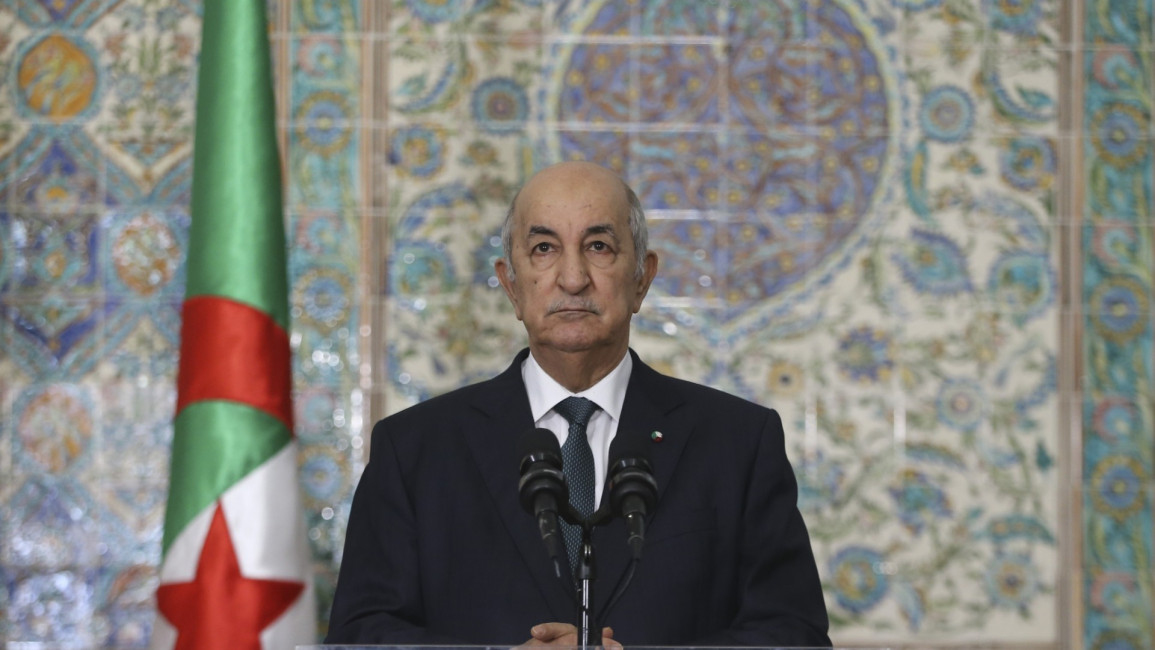Follow us on Facebook, Twitter and Instagram to stay connected
Algeria's new economic reforms aims to save $20 billion by the end of 2020
Algeria's new economic reforms aims to save $20 billion by the end of 2020
The North African country is launching an economic plan that would help it out of its financial strait.
3 min read
Tebboune announced sweeping changes [Getty]
Algerian authorities have proposed an economic plan that could save $20 billion this year through reforms and by lowering its imports bill, the government announced.
The OPEC member is under pressure to ease the detrimental impact of a drop in oil and gas earnings, brought about in part due to the global financial crisis due to the coronavirus pandemic.
Algeria cut public spending and postponed investment projects for 2020 in a number of sectors including energy, and the economic plan hopes to ease the impact of financial losses as the country reels from covid-19.
Energy accounts for 60 percent of the state budget and 93 per cent of total export revenues.
President Abdelmajdid Tebboune plans to reform the banking system, and ministers discussed reducing the cost of imports by using the national fleet to import goods, the government said in a statement during a cabinet meeting.
Algeria spends an estimated $45 billion annually on imports of goods including food because domestic output is insufficient to meet growing demand from the country's 44 million people.
The North African country also plans to speed up a plan to launch an Islamic finance sector in an effort to provide a new funding source for the economy.
Utilising Sharia financial services would also attract local savers.
"All these measures would enable Algeria to save about $20 billion before the end of this year," the statement quoted Tebboune as saying at the meeting.
The government’s "economic and social revival plan" aims to reduce reliance on the energy sector.
|
"This may be achievable, but on conditions, including generalising the use of bank cards as part of the banking reforms," said economics professor Abderrahmane Aya.
"Most payments are currently made in cash."
Growing economic turmoil
Last month Tebboune reshuffled the government to try to fix growing economic problems linked to the country's dependence on oil revenues and fallout from coronavirus-related restrictions on production, travel and trade.
State news agency APS announced the changes by President Abdelmadjid Tebboune in late June.
Algeria's central bank chief, Aymene Benaberahmane, is taking over the economy ministry at an especially sensitive time, as Algeria struggles with a drop in oil prices.
A former CEO for state gas and oil company Sonatrach, Abdelmadjid Attar, is now energy minister.
The reshuffle includes the creation of a new department of energy transition and new energies, as Algeria tries to diversify away from the oil and gas that have long dominated the economy.
The new cabinet also includes ministerial delegates for the digital economy, small and medium-sized businesses, the Algerian community abroad and sports performance.
Tebboune took office in December despite a boycott of his election by opposition protesters whose pro-democracy movement helped push out long-time President Abdelaziz Bouteflika last year.



